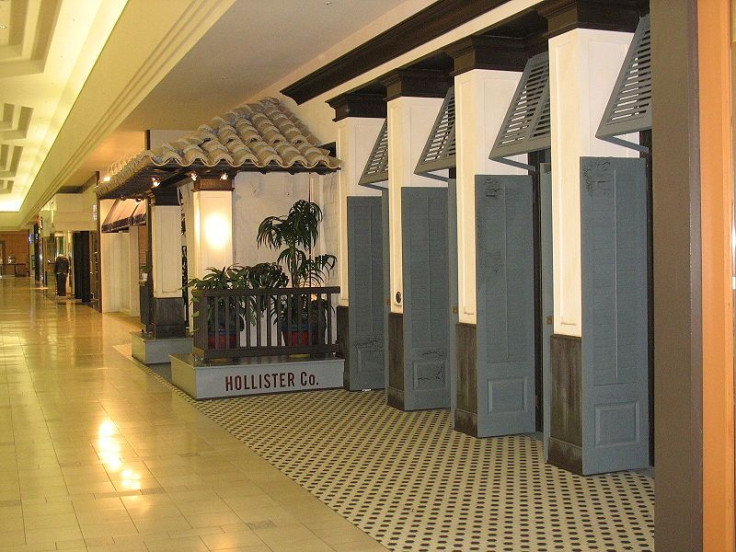Hollister Caught In Legal Battle Over Discrimination Against Disabled People

California surfer-inspired clothing line Hollister is facing legal action after a slew of disgruntled Colorado shoppers criticized the stores lack of handicap-accessible entrances. The lawsuit was originally filed back in 2009 by the Colorado Cross-Disability Coalition (CCDC).
One of the customers involved in the lawsuit, Julie Farrar, found herself unable use the step-up entrance because of her wheelchair and never found a suitable way inside the store. Ferrar described her embarrassment for herself and her children in a statement released on Wednesday.
"As a person who has grown up with a disability who was excluded from many public and private buildings and experiences (including) school, dining, shopping, arguably because those buildings were built pre-ADA (Americans With Disabilities Act), I am simply referencing an attitude of exclusion that was prevalent during that time," she said.
U.S. District Judge Wiley Daniel ordered Hollister's controlling company Abercrombie & Fitch to improve their standards for accommodating the disabled two months ago, the Colorado Independent reports.
Under the Americans with Disabilities Act (ADA), discrimination against any disabled person is prohibited in the confines of employment, state and local government services, public accommodations, commercial facilities, and transportation.
In July 2010, Attorney General Eric Holder finalized the revision of the ADA Standard for Accessible Design, a set of minimum requirements for building accessibility to which all public entities must adhere.
"If the ADA stands for anything, it stands for this," said CCDC's executive director Julie Reiskin.
"Integration means people with disabilities must have access to, and the right to enjoy, every part of a place of public accommodation, just like anyone else. Separate and unequal will no longer do."
The CCDC is Colorado's largest disability advocacy group consisting of people with disabilities as well as non-disabled people. The press release offered by the CCDC stated:
"The question in this case has been: can a retail chain, like Hollister, have an entryway that displays merchandise, provides furniture, and is part of Hollister's self- proclaimed "in-store experience" that is only accessible to people who can walk up and down stairs? Unlike nearly all shopping mall stores, Hollister builds a platform that resembles a beach shanty porch at the front entrance of its stores. These platforms require a person to walk up two steps to the platform and walk down two steps to enter the store. Obviously, they are not accessible to customers who use wheelchairs."



























